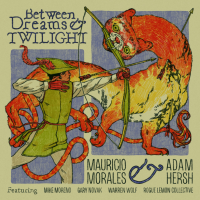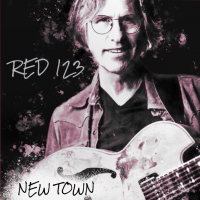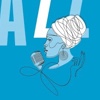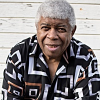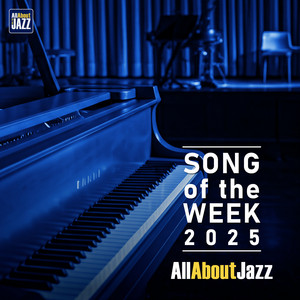Home » Search Center » Results: Ezz-Thetics
Results for "Ezz-Thetics"
Dizzy Gillespie & Charlie Parker: Live Revisited

by Chris May
The first six tracks on this album, which were recorded at New York City's Town Hall on June 22, 1945, are amongst the most exciting in the jazz compendium. Not only because of their intrinsic artistic merit but also because they mark one of the first, if not the first, occasion the vanguard of the bop ...
Paul Bley Trios: Play Annette Peacock Revisited

by Maurizio Comandini
Questi bellissimi quattordici brani sono stati registrati nel 1966 (i primi otto) e nel 1968 (i restanti sei). Tutti sono stati scritti da Annette Peacock e registrati dal trio di Paul Bley, assieme a brani di altri compositori, per poi essere pubblicati nei mesi successivi alla registrazione stessa. Questo eccellente CD della Ezz-Thetics estrae e raggruppa ...
Archie Shepp, Don Cherry, John Thicai, Don Moore, J.C. Moses: Copenhagen 1963 Revisited. Live Jazzhus Montmartre

by Stefano Merighi
Questo concerto registrato al Jazzhus Montmartre di Copenhagen risale a una settimana esatta prima dell'assassinio di JF Kennedy a Dallas. E già questo colloca il nostro ascolto in un contesto, in un'atmosfera specifica. Ma in quel 1963 venne assassinato anche Medgar Evers (il 12 giugno), tra i più autorevoli attivisti afroamericani, freddato da un suprematista bianco ...
Charlie Parker: At Birdland 1950 Revisited

by Chris May
When it comes to live recordings of Charlie Parker, Jazz At Massey Hall, from a concert in Toronto in May 1953, has been widely considered the slam-dunk number one ever since Charles Mingus released it on his Debut label in 1956. Forensicists might favour the 7-CD The Complete Dean Benedetti Recordings Of Charlie Parker (Mosaic, 1990), ...
The New York Art Quartet and the Noah Howard Quartet on Ezz-thetics

by John Eyles
Although the Ezz-thetics label has been issuing a steady stream of classic albums from the '50s and '60s, some of the label's releases cannot be called classics but are of great historical interest and significance nonetheless. Some such albums are discoveries which have never before been released, while others are reissues of albums which were outshone ...
Wayne Shorter: Adam's Apple To Super Nova Revisited

by Chris May
In the three and a half years which separate the recording of the Blue Note albums Adam's Apple, in February 1966, and Super Nova, in August and September 1969, jazz went through a paradigm shift going on profound identity trauma. In 1966, though it was already past peak popularity, hard bop was still an important soundtrack ...
Archie Shepp: Four For Trane To Live Newport 1965 Revisited

by John Eyles
Ezz-thetics have already released several '60s albums featuring Archie Shepp which were recorded before or after the music on Four For Trane to Live Newport 1965 Revisited. These have included the New York Contemporary Five's Copenhagen 1963 Revisited plus Shepp's Fire Music To Mama Too Tight Revisited, recorded in 1965 and 1966, and Blasé and Yasmina ...
Eric Dolphy: Outward Bound To Out To Lunch Revisited

by John Eyles
Ask any jazz aficionado for their favourite jazz albums of the '60s and the chances are that, alongside such decade-defining choices as Jimmy Giuffre's Free Fall (Columbia, 1963), John Coltrane's A Love Supreme (Impulse, 1965), Andrew Hill's Point of Departure (Blue Note, 1965) and Albert Ayler's Spiritual Unity (ESP, 1965), they will select Eric Dolphy's Out ...
Ornette Coleman: Ornette At 12, Crisis To Man On The Moon, Revisited

by John Eyles
The re-release albums on Ezz-thetics, by jazz legends from the 1940s, '50s and '60s, have been widely praised, particularly for their sound quality which is invariably much improved compared to the originals or later rereleases. Another impressive aspect of these re-releases is the behind-the-scenes detective work which has tracked down rarities by some iconic musicians. One ...
Albert Ayler: Summertime To Spiritual Unity Revisited

by Chris May
This landmark reissue contains consummately remastered cuts of the killer (among killers) track from Albert Ayler's relatively unknown My Name Is Albert Ayler (Debut 1964) plus the justly celebrated Spiritual Unity (ESP-Disk, 1965) in its entirety. Summertime To Spiritual Unity Revisited starts with “Summertime" from the 1964 album. In his survey The Jazz ...





